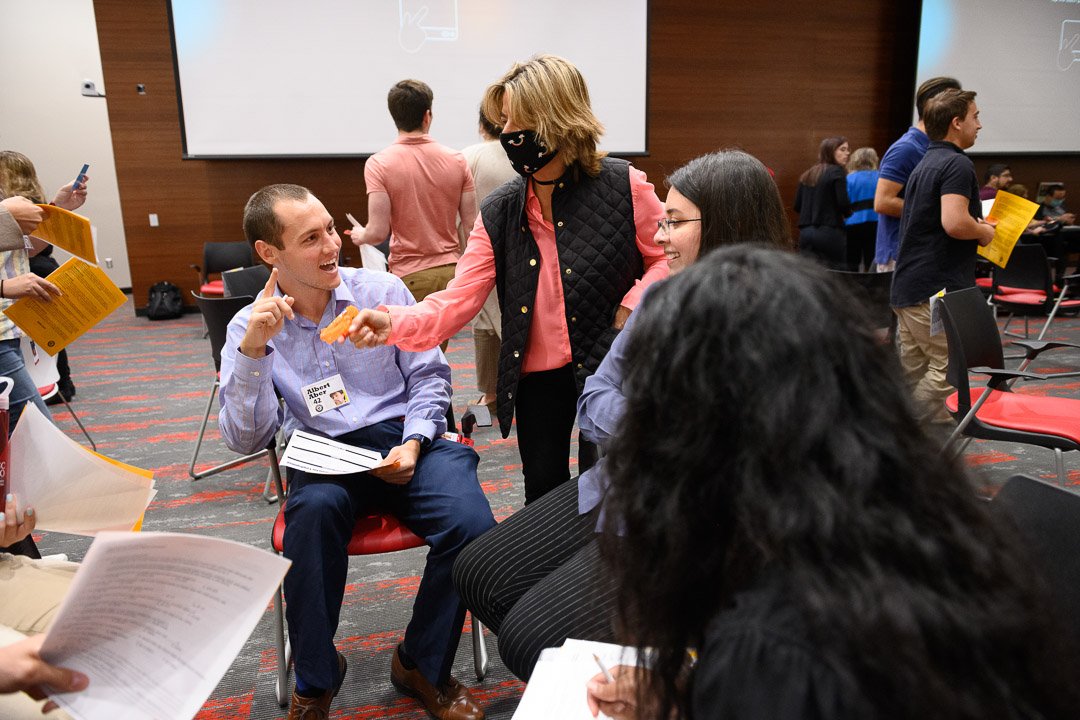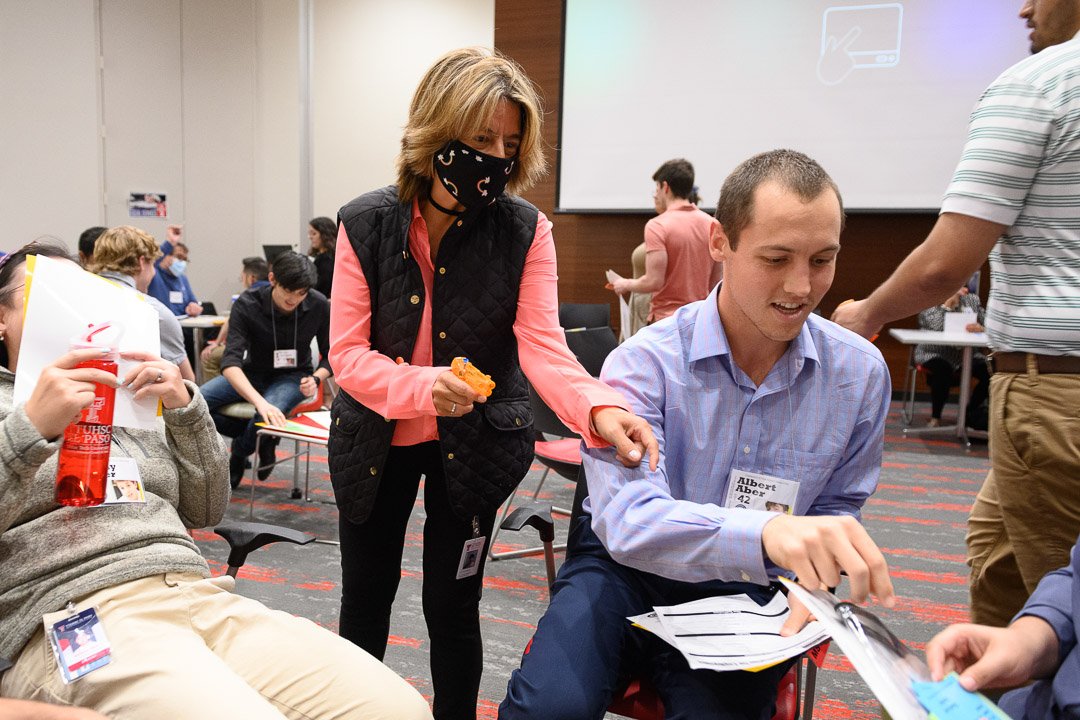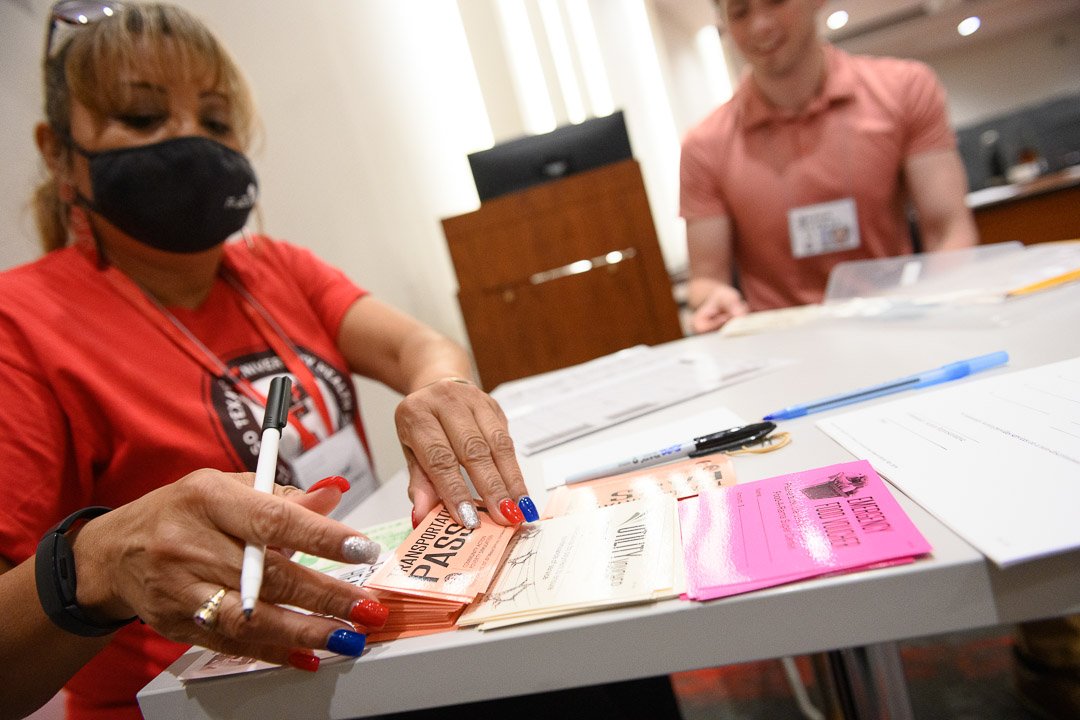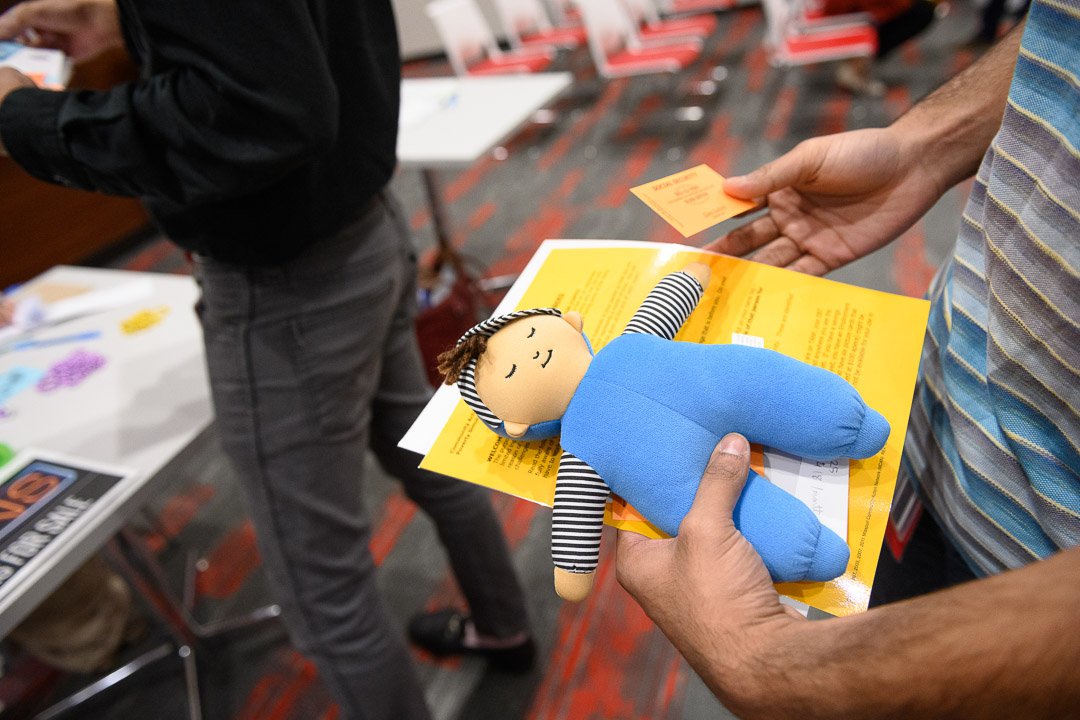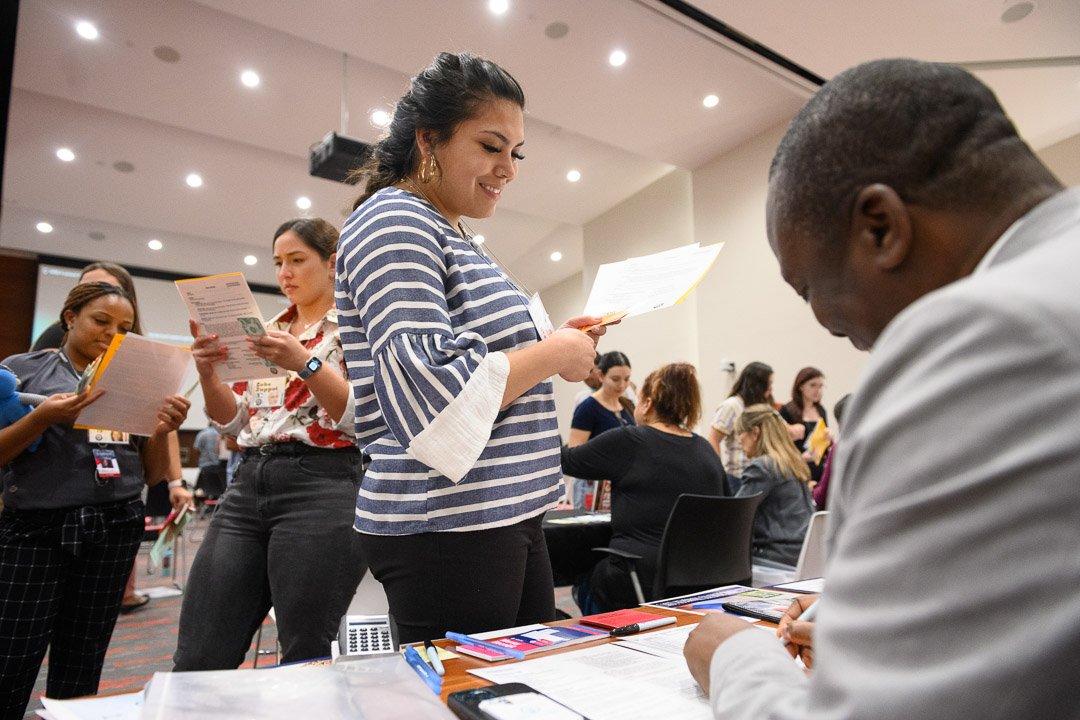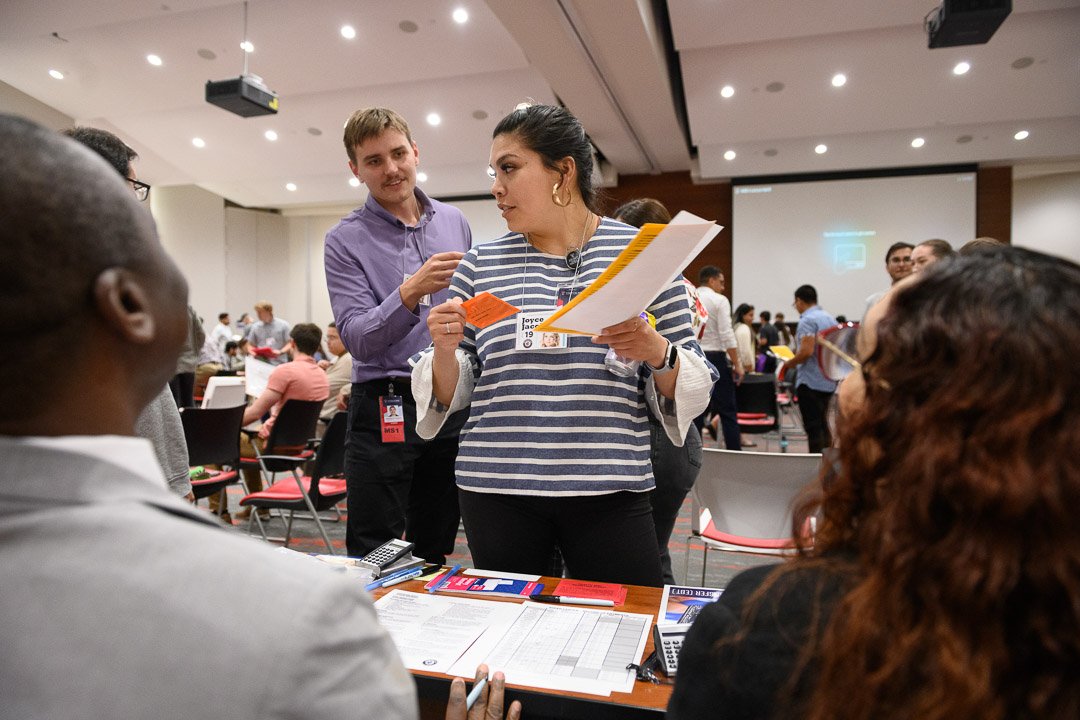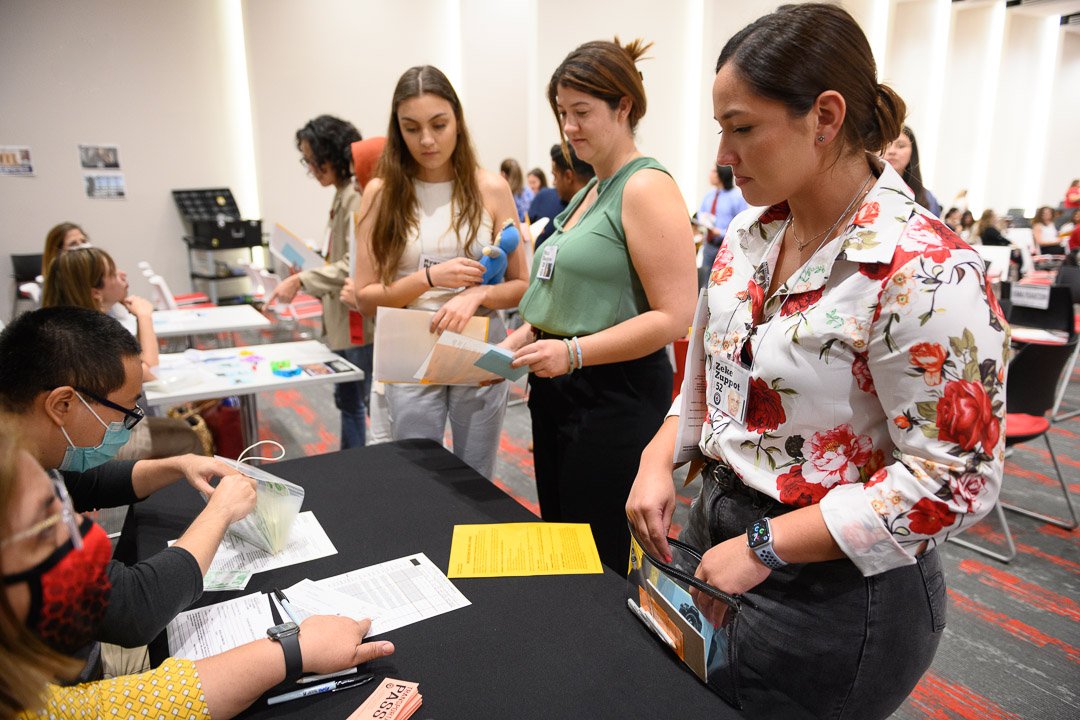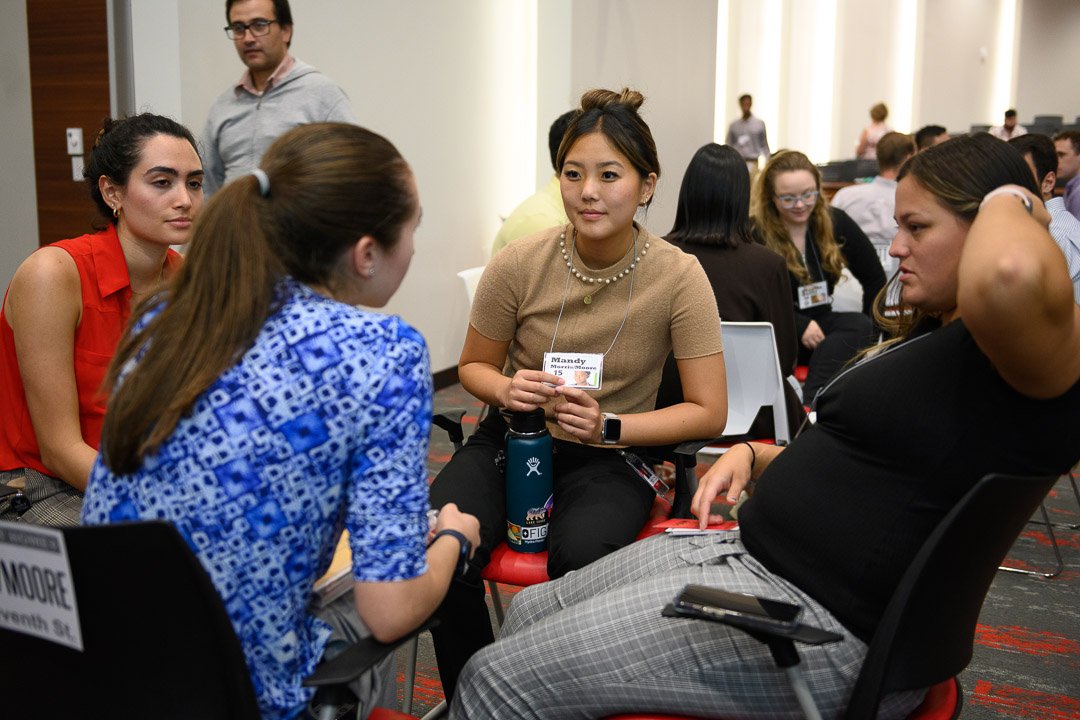Immersion Courses
New Medical and Dental Students Immerse Themselves in El Paso’s Culture While Honing Clinical Spanish Skills
Courses for first-year students help them understand region’s health care needs
A desperate family stepped up to the pawn shop counter, presented a TV and camera and asked the employee for $150 for the electronics.
“Forty dollars for both,” the employee replied coldly.
“One hundred for both,” a family member countered.
“Sorry, all I can do is $40,” the employee said, shaking her head. Disappointed, the family agreed and walked out with cash to help them survive the week.
This role-playing “family” of students, along with around 200 other first-year students from the Foster School of Medicine and Hunt School of Dental Medicine, experienced a “poverty simulation” as part of an educational workshop at Texas Tech University Health Sciences Center El Paso. Dental and medical students experience this simulation workshop to better understand what the 18.8% of El Pasoans living in poverty go through nearly every day. As one might expect, poverty is a major obstacle to accessing routine health and dental care.
The poverty simulation is an innovative experiential learning addition to the introductory component of the Society, Community, and the Individual (SCI) course that TTUHSC El Paso medical and dental students take during a three-week period in July informally known as “immersion.” As the name indicates, students at the two schools begin their academic journey with an immersion in the unique lifestyle, culture and language of the Borderplex community. Currently, nearly 40% of Hunt School of Dental Medicine students and 20% of Foster School of Medicine students hail from El Paso or West Texas counties with culture similar to that of the Borderplex.
The immersion courses – Society, Community and the Individual, and Conversational/Clinical Spanish – are the first courses medical and dental students complete before they begin studying medicine and dentistry in August to kick off “Year One” at TTUHSC El Paso.
Immersion has been part of curriculum since the medical school opened in 2009. The new Hunt School of Dental Medicine also adopted immersion into its curriculum, and its inaugural class completed the courses in summer 2021.
Salma Elwazeer, B.D.S., M.D.S., M.P.H., assistant professor of public health and dental public health at the Hunt School of Dental Medicine and director of the dental component of the SCI course, pushed to integrate the poverty simulation experience to the immersion course. Dr. Elwazeer said the experience is a great addition to immersion at TTUHSC El Paso this year.
“With the simulation, we’re trying to help students understand the realities of poverty,” Elwazeer said. “Students role-play as low-income families trying to survive a month in poverty. They experience the families’ hardships and the day-to-day challenges facing those families while interacting with various community agencies. Understanding those challenges can promote poverty awareness, transform students’ perspectives and their unconscious biases toward disadvantaged populations, and inspire their roles as future health care providers to be the local change in the health care field.”
Immersion professors hope these future health care leaders will better understand the barriers many underserved patients face in accessing health care, including a lack of transportation that causes them to miss appointments and low incomes that prevent them from seeking treatment at early stages of a disease.
During immersion, students also hit the road to assess the social, health and infrastructure needs of the community.
They visited area neighborhoods, unincorporated communities (colonias), and regional towns and cities, including Canutillo, Clint, Fabens, Horizon City, Montana Vista, San Elizario, Socorro, and Sunland Park and Chaparral, New Mexico, to speak to residents and community leaders about their community’s health care needs.
Jorge Torres, a first-year medical student from Eagle Pass, Texas, said immersion was a great way for students to interact with each other and create support networks among themselves.
“I thought it was helpful and informative to participate because as future physicians, we'll be serving a community where residents are going through what we experienced during the simulation,” Torres said.
A Unique Program
TTUHSC El Paso immersion professors said it’s a one-of-a-kind course offering that sets the Foster School of Medicine and the Hunt School of Dental Medicine apart from other medical and dental programs across the country.
“It’s an opportunity to get students immersed in the local community and learn about their future patients in their first weeks on campus,” said Lee Rosenthal, Ph.D., M.S., M.P.H., director of the medical component of the SCI course and assistant professor in the Foster School of Medicine.
First-year medical student Jessica Hoffman from Dallas, Texas, was assigned to visit Chaparral, New Mexico, where she interviewed community health care workers and a health clinic employee.
“As a group, we discovered several health care challenges in Chaparral,” Hoffman said. “For example, transportation, especially to specialty doctors, is very limited. Diabetes and other chronic illnesses are a large concern for the clinic. And mental health is an issue, but there are almost no resources to address these needs.”
Hoffman said spending time with community members provides invaluable lessons.
“It’s the best way to understand how to be a competent, compassionate and culturally aware health care provider,” Hoffman said. “Through this experience, I interacted with a medically underserved local community. It’s important to understand their needs so as health care providers, we can work to expand access and quality care for these residents.”
Working on Spanish language skills is the other important aspect of immersion because language and cultural barriers can also be obstacles to communication and self-advocacy for underserved patients.
Research shows that patients with limited English proficiency greatly benefit from bilingual health care providers and are more likely to understand diagnosis and treatment and adhere to medication and routine care.
“Our Spanish instructors are very understanding and patient with us as we're learning,” said Kyanna Spain, a first-year dental student from El Paso. “I really like the information we've been getting and the discussions we've had because cultural competency will be very important as a future provider.”
About TTUHSC El Paso
TTUHSC El Paso is the only health sciences center on the U.S.- Mexico border and serves 108 counties in West Texas that have been historically underserved. It is also the only health sciences center on the U.S.-Mexico border designated as a Title V Hispanic-Serving Institution, preparing the next generation of health care heroes, 48% of whom identify as Hispanic and are often first-generation college students.



